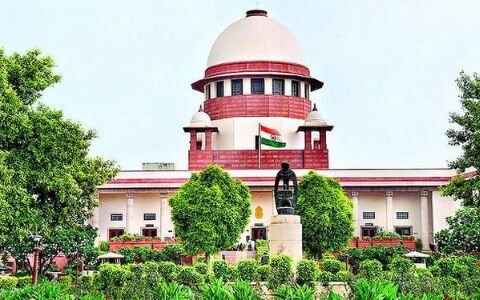Turning point?

Much of the handling of the Coronavirus in the coming months will depend on the plans of the Central Government. The 200-page affidavit on the national Covid plan submitted to the Supreme Court by the Centre by and large fell short on putting forward concrete and decisive measures to contain the virus. At the same time, it did admit that the "sheer magnitude of the unprecedented surge" brought inbuilt limitations in terms of available resources. Amid all this, what is reassuring is the activism shown by the 'third pillar' at different levels. The Supreme Court rightly realized that it cannot remain "a mute spectator" at the time of this national calamity. If the Supreme Court and high courts continue with the same spirit it could indeed prove out to be a turning point in the ongoing battle against the COVID-19 pandemic. The Supreme Court's April 27 clarification that its intervention is not meant to supplant the actions of high courts, and that it would play a coordinating and complementary role, was a very positive communication. The apex court's intervention was rightly timed as high courts continue to tighten the screw at the regional and state level — creating an urge for uniformity in measures taken. Being aware of the ground situation, high courts are better placed to make assessments. The Supreme Court, on other hand, can ensure that there is no contradiction in judgements passed by various high courts to ensure smoother developments. But, the concerns raised by the Supreme Court bench and other high court benches are very deep-rooted and complex. From the SC bench, Justice Ravindra Bhatt had sought clarification from the Centre on the disparity of prices of drugs produced by various manufacturers. The bench also demanded information on the availability of oxygen, Covid beds, Remdesivir and other drugs. It also asked the Centre what steps it has taken towards ensuring the availability of vaccines at equitable prices. Delhi High Court and Nagpur, Bombay and Aurangabad bench of Bombay High Court among others have also flagged similar concerns. While the Centre's response to these questions will ensure the much-needed transparency in the system, it will still be a small first step. The Centre has expressed its resolve to abide by the rulings of the Supreme Court and High Courts but does it have the resources at its disposal to bridge the glaring gaps that are evident in its handling of Covid?
It may be soothing to see the Judiciary spring to action at the time of national calamity to hold the executive wing accountable but the task that lies ahead of the executive is still very daunting. Whatever be the reason — lack of prior preparedness or the "unprecedented" surge in cases or both — the reality is that we have lost control of the situation completely. It will require rigorous planning, plenty of resources and their optimum utilization to bring things back in the right order. The cognizance taken by various courts can perhaps be taken as an opportunity to make a U-turn towards a normal situation. The Centre and states could do well to avoid submitting affidavits and plans for mere formality. The SC's direction to states and the Centre to come up with their plans is particularly significant as it would offer them a common window where they can coordinate their plans to achieve the common end — something which is extremely crucial at this juncture. Judiciary has time and again lived up to its tradition of judicial activism and review. History is replete with instances when it has made a difference in tough situations. At the time of this global crisis which has affected our nation the most; and the other two wings of our democratic set-up have failed to make the required mark, judiciary's intervention is conceived as timely and accurate. It is hoped that these efforts don't die down in the chaos, and the Centre and states will join hands to grab the opportunity with both hands to beat the haunting deadly virus.



